The latest update on best practices from the American College of Gastroenterology
Epidemiologic data from the U.S. suggest that the prevalence of gastroesophageal reflux disease (GERD) is increasing at an average annual rate of 3%. Clearly, GERD represents a considerable burden to patients as well as an ongoing challenge for clinicians to identify best therapies. Now, the American College of Gastroenterology has updated their guidelines for the treatment of GERD.
The level of evidence supporting each recommendation was designated as high, moderate, or low. Recommendations were designated as strong (i.e., desirable effects of an intervention outweigh any undesirable effects) or conditional (i.e., uncertainty exists about trade-offs).
Comment: These guidelines provide the most up-to-date guidance on the diagnosis and management of gastroesophageal reflux disease. The omission of the most recent surgical magnetic ring device (JW Gastroenterol Feb 20 2013 [NEJM abstract]) is because of a time lag in the date of publication and does not indicate a dismissal of the technology. I strongly suggest that clinicians review all recommendations and weighted evidence in this comprehensive report.
CITATION:
Katz PO et al. Guidelines for the diagnosis and management of gastroesophageal reflux disease. Am J Gastroenterol 2013 Mar; 108:308.


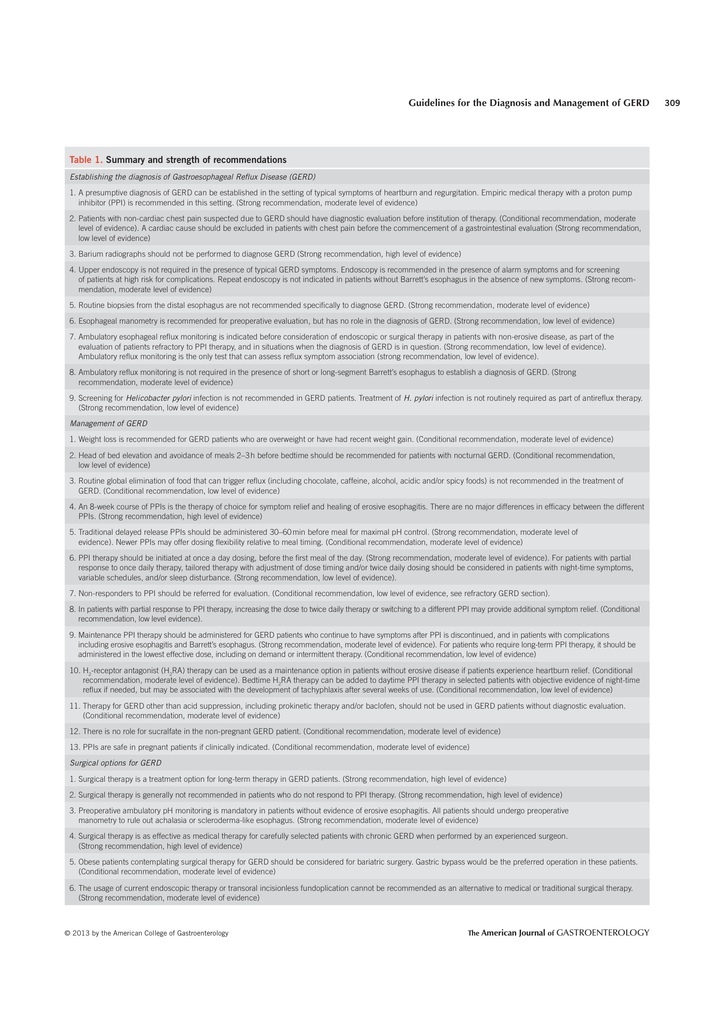
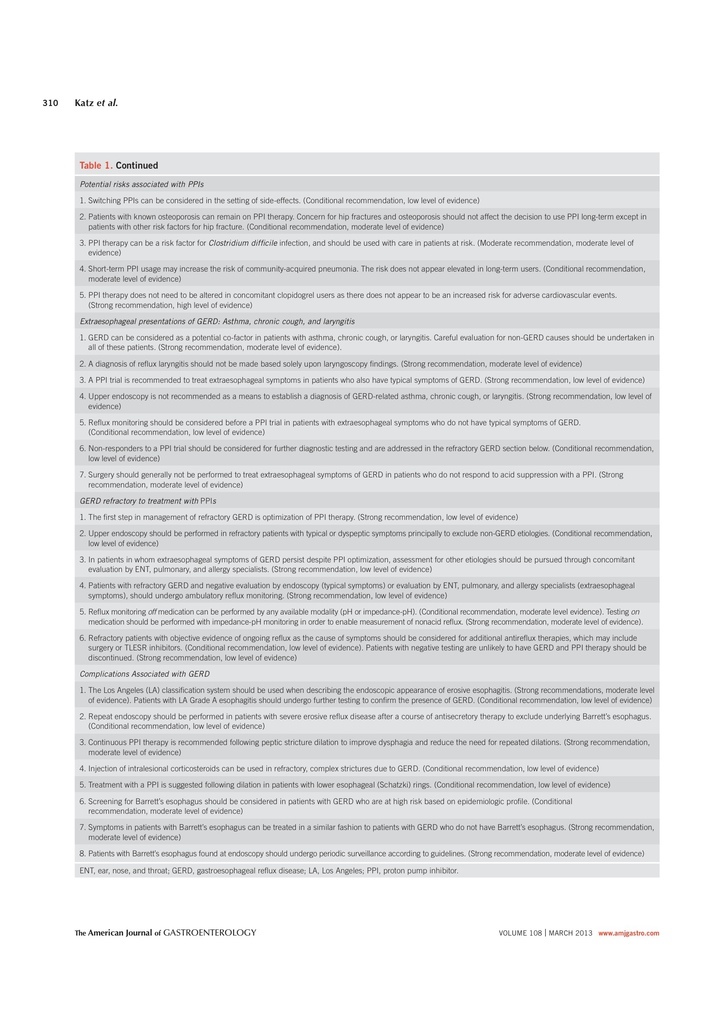
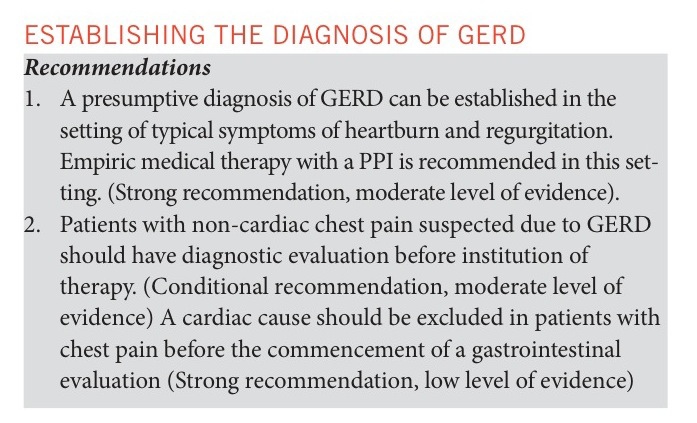
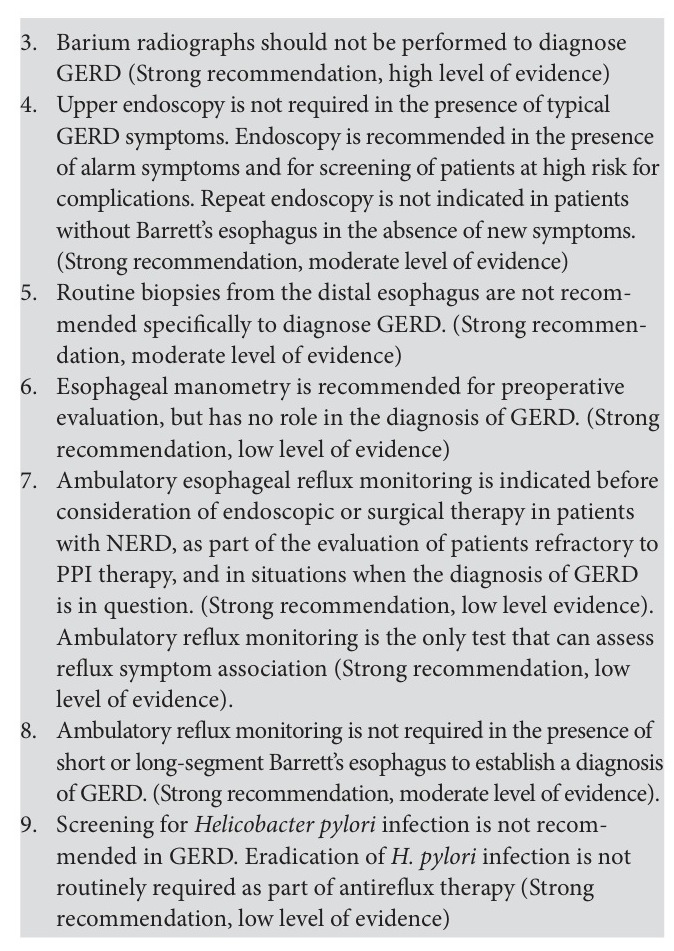
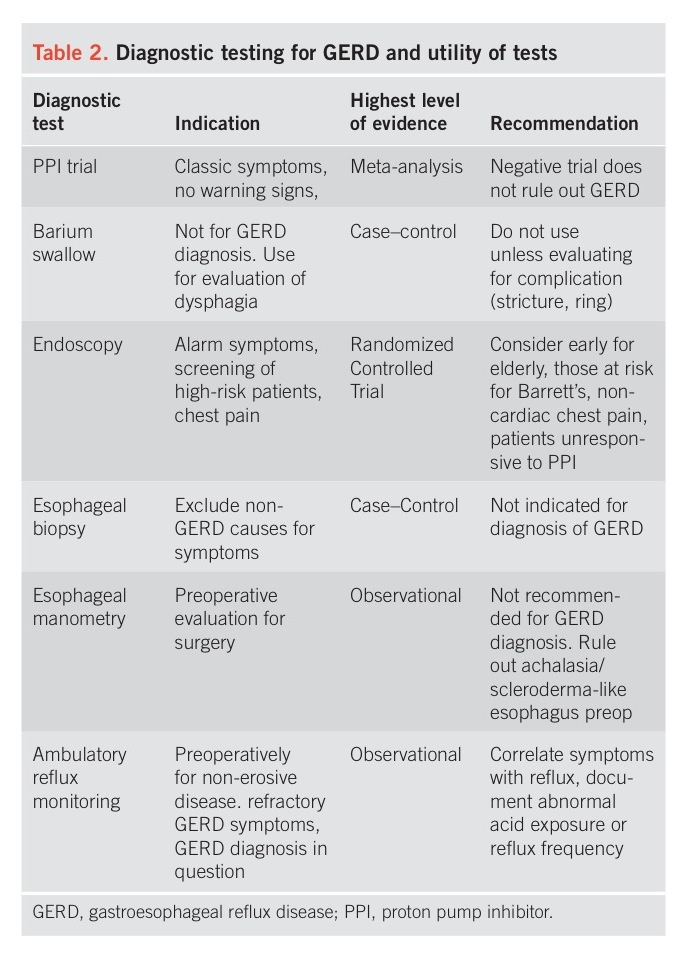
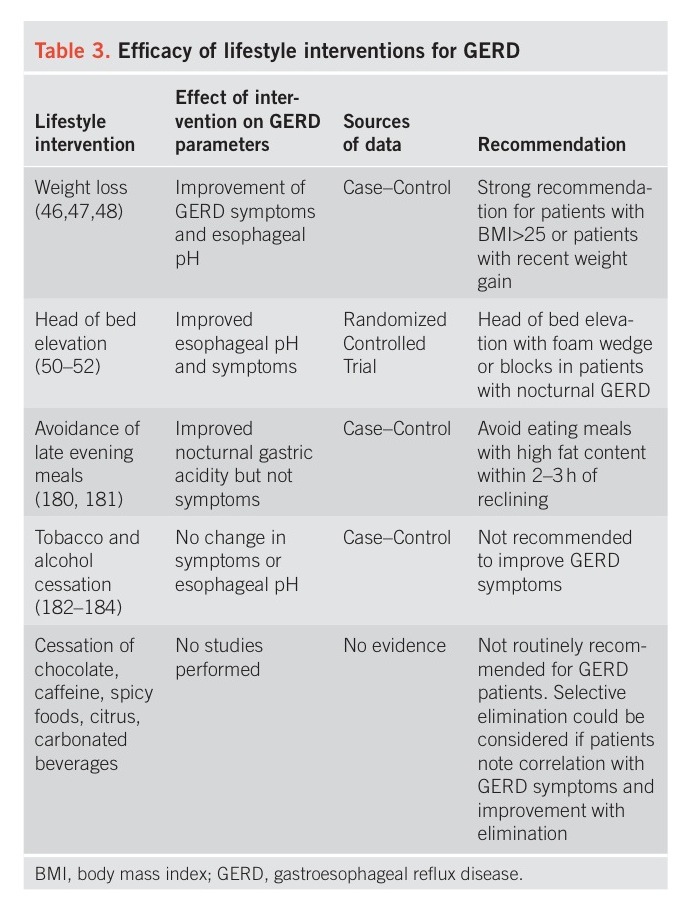
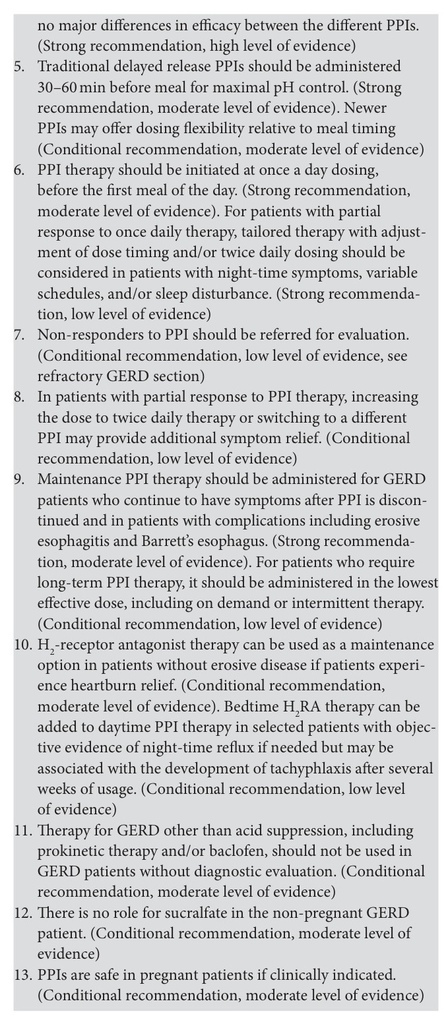
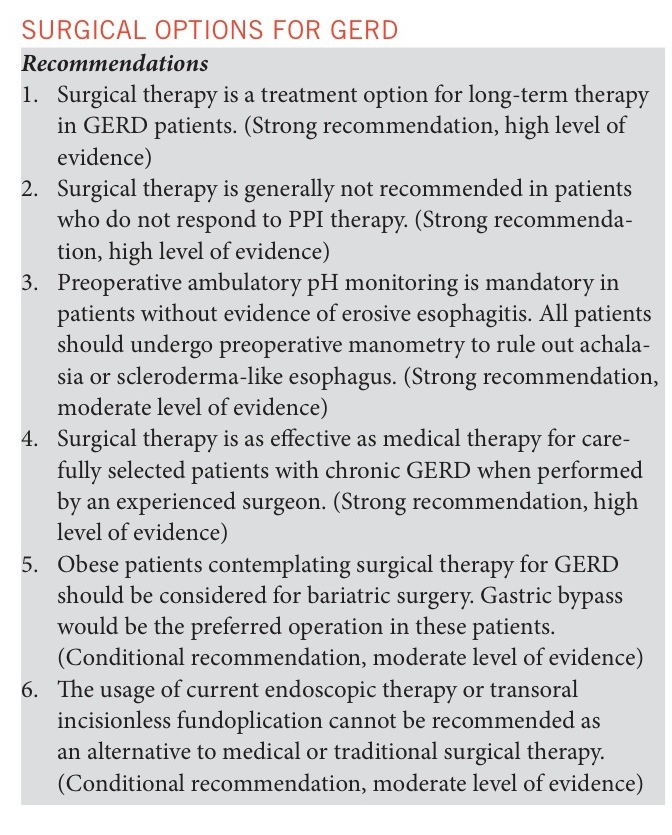
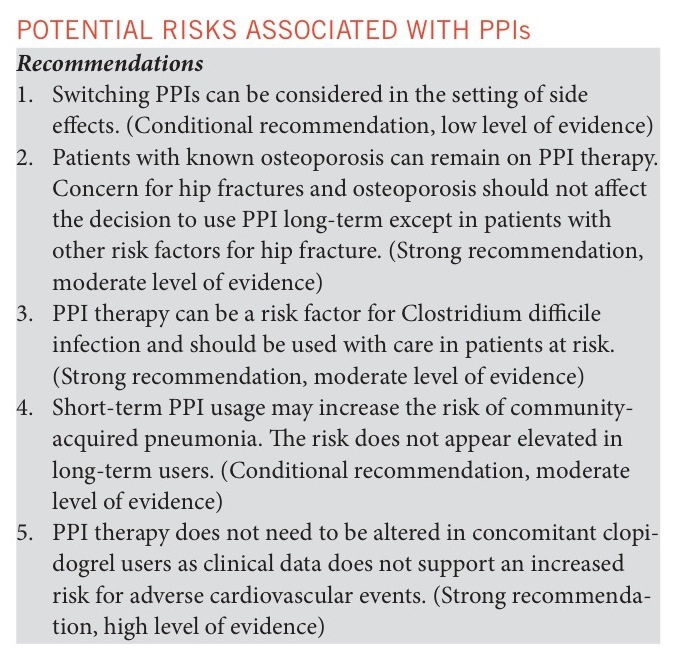
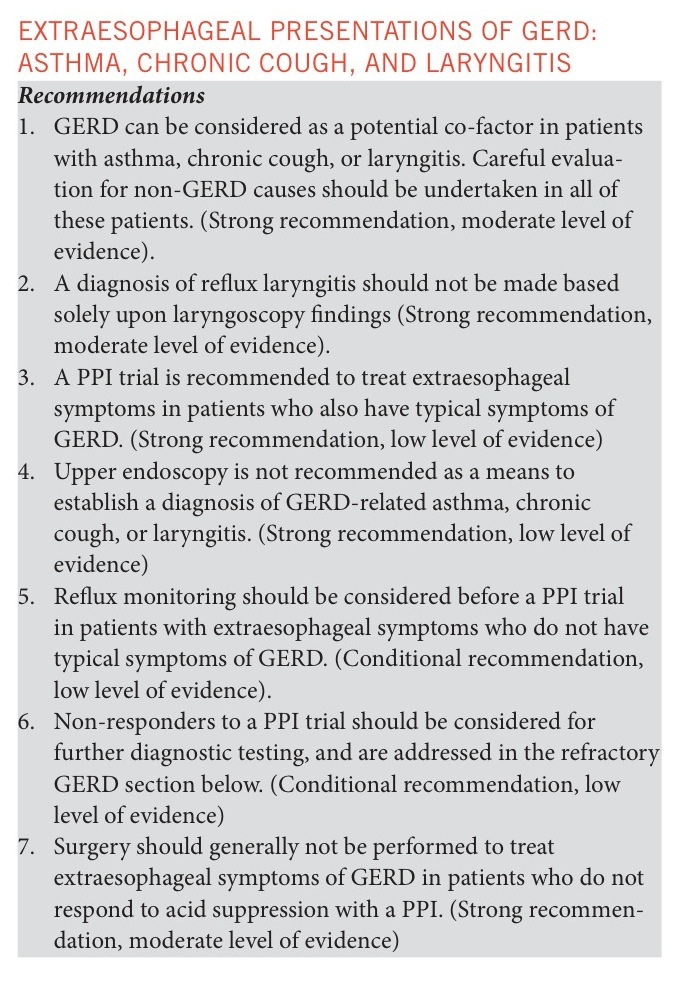
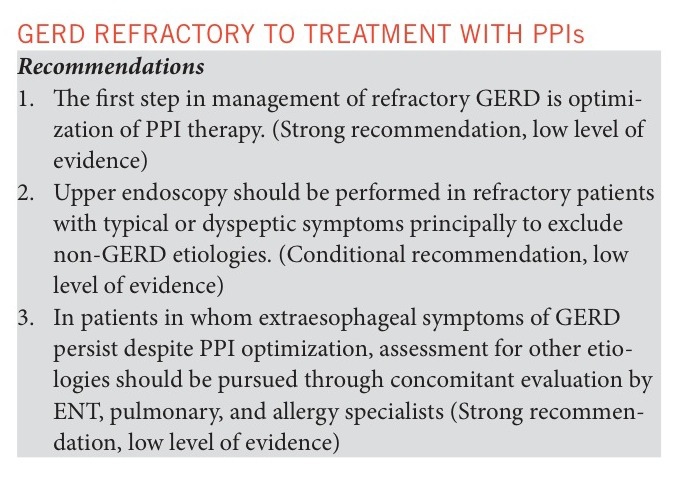
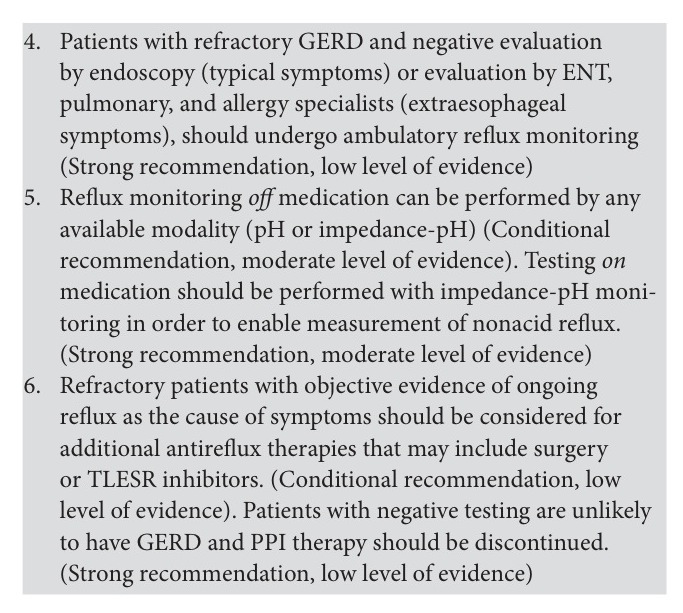
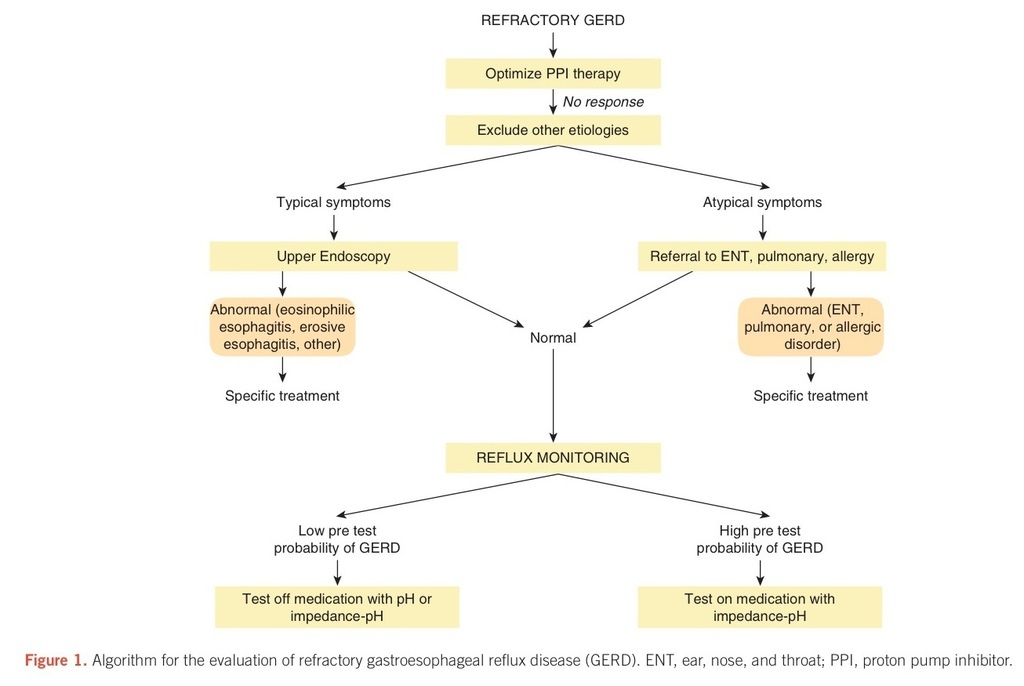
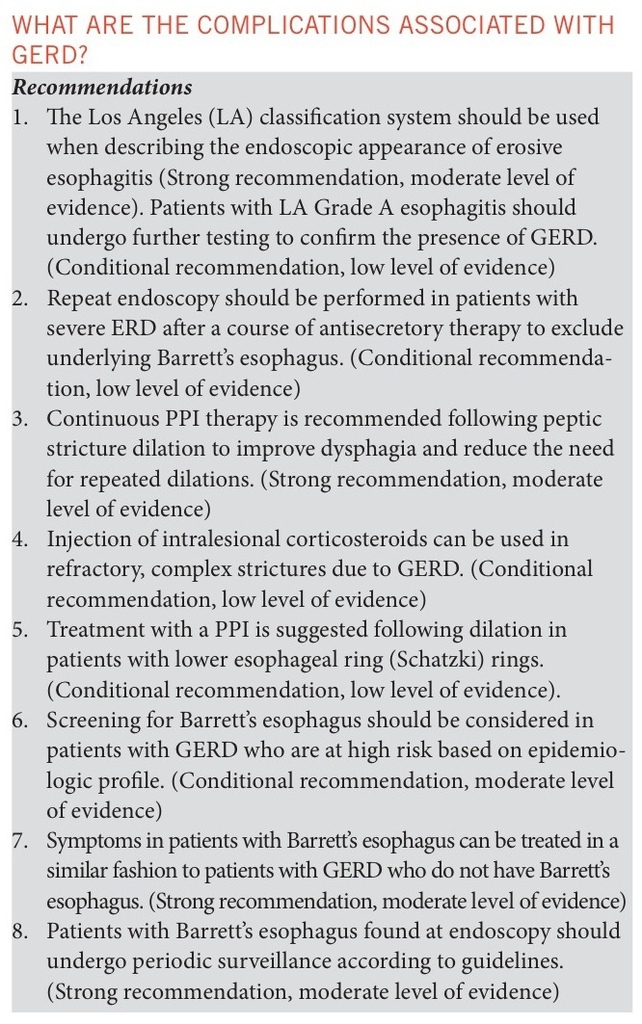



 留言列表
留言列表
 線上藥物查詢
線上藥物查詢 